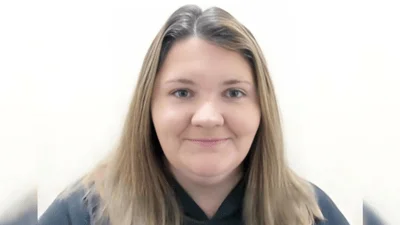Andrea Rediger, Secretary | Ball-Chatham School District
Andrea Rediger, Secretary | Ball-Chatham School District
Ball-Chatham Community Unified School District 5 Policy Committee met April 14
Here are the minutes provided by the committee:
In Attendance:
Laura Calderon - Board Member
Ryan Murphy - Board Member
Pat Phipps - Board Member
Andrea Rediger - Board Member
Tiffani Saunders - Board Member
Ann Strahle - Board Member
Becca Lamon - Superintendent
Two policies were discussed at the meeting:
Policy 7:240 Extracurricular Activities Conduct Code for Participants
Policy 7:300 Extracurricular Athletics
During the policy review process it was noted that references to random student drug testing were absent from the comparison of the policies to the PRESS policies during the review process. These policies were brought to the March 2025 Policy Committee and discussed. Prior to moving forward for first reading, members of the Board asked to hold a further discussion about the policies.
Laura Calderon asked for the data related to drug and alcohol offenses. Dr. Lamon shared that so far for the 24-25 school we have had 33 students with drug or alcohol offenses. Some students have had more than one offense. The offenses have occurred at GIS, GMS, and GHS.
Ryan Murphy asked if there is funding to implement a random drug testing program. Dr. Lamon responded that there is no additional funding to implement a program.
Pat Phipps stated that testing is not random if we have probable cause.
Ryan Murphy shared his thoughts about the large administration load that such a program would create and posed questions about handling testing materials and records.
Pat Phipps stated that such a program could have an effect on extra curricular participation. Parents may be inclined to seek legal counsel if a student is asked to participate in testing. He also shared concerns about privacy concerns related to the collection of urine samples. Phipps posed the question if there are direct safety issues if students arrive at school under the influence.
Laura Claderon shared thoughts on the potency levels of marijuana today and how do we deter students from using today’s version. Child brain development is affected by this highly potent drug and the new delivery systems with vapes. The vape vapor can stick to the lungs like glue.
Tiffani Saunders shared her thoughts about bias. If trained professionals can’t absolve their bias then we should not expect school administrators to be able to do this. What other tools can be used to curb usage. Screenagers is not working based on the attendance that we have had.
Ryan Murphy echoed that education is better than punitive measures.
Tiffani Saunders referenced the D.A.R.E. program that we grew up with and how we all knew the “this is your brain on drugs” statement. Rates of drug usage are lower when there is education. D.A.R.E. has been updated and there is a conference in Indianapolis this summer that the district could explore.
Ryan Murphy pointed out that the district would not be able to control the media spin on BCSD random drug testing students and the potential for negative press.
Further conversation occurred about the role of the district in creating a deterrent environment. Saunders stated that in the criminal justice system deterrents are only effective for a small group of individuals.
Ann Strahle shared a personal story related to the topic.
Dr. Lamon shared the plan to integrate the Screenagers curriculum into the health classes and concerned that we are missing the majority of the high school students since health class only occurs at the freshman level. Saunders indicated that education needs to occur at much younger ages to be effective.
Andrea Rediger stated that the inclusion of random drug testing in the policy gives the district the opportunity to address the problem, not necessarily the implementation of the program at this time. Phipps stated that PRESS is a guide and not a mandate to include the language. PRESS provides the board the opportunity to decide what is best for the district.
Further concerns were shared about protecting administrators, the true randomization of the process, confidentiality and implementation.
Laura Calderon stated that ISHA and other policies address probable cause situations. The random testing was appealing because it allowed students to sit out until a clean test result. However, the timing of testing could become problematic.
Phipps stated that some students would have advantages if they could afford or had access to materials to beat the test and that there is gender disparity in faking a test.
Murphy shared that with advance notice tests could be altered
Phipps stated the details of the plans are essential to ensure a quality program.
Calderon stated that she felt there is a bigger drug problems than the district data shows. A conversation occurred around the duty of the district to curb or deter drug usage.
The next board will need to finalize the policy review.
https://go.boarddocs.com/il/cusd5/Board.nsf/Public






 Alerts Sign-up
Alerts Sign-up